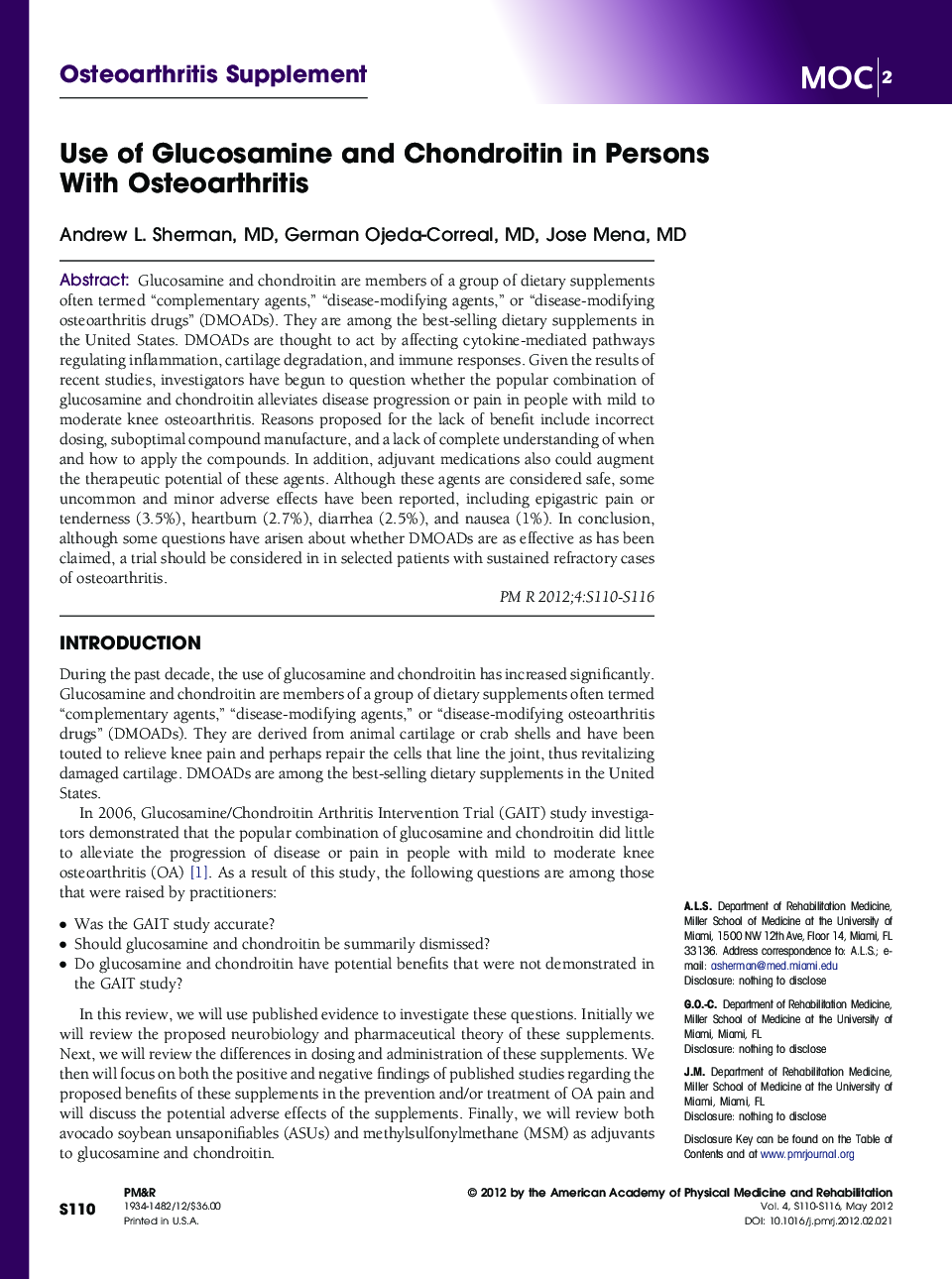| Article ID | Journal | Published Year | Pages | File Type |
|---|---|---|---|---|
| 2705737 | PM&R | 2012 | 7 Pages |
Glucosamine and chondroitin are members of a group of dietary supplements often termed “complementary agents,” “disease-modifying agents,” or “disease-modifying osteoarthritis drugs” (DMOADs). They are among the best-selling dietary supplements in the United States. DMOADs are thought to act by affecting cytokine-mediated pathways regulating inflammation, cartilage degradation, and immune responses. Given the results of recent studies, investigators have begun to question whether the popular combination of glucosamine and chondroitin alleviates disease progression or pain in people with mild to moderate knee osteoarthritis. Reasons proposed for the lack of benefit include incorrect dosing, suboptimal compound manufacture, and a lack of complete understanding of when and how to apply the compounds. In addition, adjuvant medications also could augment the therapeutic potential of these agents. Although these agents are considered safe, some uncommon and minor adverse effects have been reported, including epigastric pain or tenderness (3.5%), heartburn (2.7%), diarrhea (2.5%), and nausea (1%). In conclusion, although some questions have arisen about whether DMOADs are as effective as has been claimed, a trial should be considered in in selected patients with sustained refractory cases of osteoarthritis.
